#cynthus
Explore tagged Tumblr posts
Note
first time anon o//o but am big fan of your Spire ocs!!!! gwah the designs are marvelous 💖 would love to learn abt each of the floor lords’ whole schtick and what their level is like, i would really love to learn more about them!!!!!
AAAAA SO I REALLY APPRECIATE THIS ASK TYSM I SCREAAAM! but, there are like. 15 of them and i want to go crazy in detail about them, so I drew them all little face thingies so that people can ask in more detail about the ones they're interested in. SO! In order, here all of them are!!!












there are a lot of them, but i promise i have thought meticulously about every single one because i'm completely fucking insane.
#my art#my ocs#the spire#ezotyl#vedal#giidri#odonsahr#luzeyus#juzaal#kasyaht#zahrak#estul#y'sephret#nadir#cynthus#the level lords#my requests#spire lore
76 notes
·
View notes
Text
I’m a big fan of the role reversal direction Kanade and Mafuyu’s dynamic has been taking recently (Kanade working so hard to save Mafuyu that she needs to be saved herself and Mafuyu having to step up and be the one eventually saving Kanade) but there’s also the way their relationships with perfection has shifted.
Initially, perfection was something Mafuyu needed to attain for the sake of her mom. For Kanade, perfection wasn’t as big a priority. Every song that didn’t work was merely a stepping stone for the next one. Now that Mafuyu is away from her mom, perfection isn’t something that needs to be maintained. However, now Kanade believes that perfection is something that she has to attain for Mafuyu’s sake. She has to make the perfect song that will save Mafuyu and anything else is a setback.
All in all I’m very excited to see where the current niigo arc is headed. I’m curious on how Ena and Mizuki are gonna play a role Kanade’s development now that mizu5 and ena5 have resolved a large chunk of their issues (though I imagine there’s still more to come in the future)
#cynthus yaps#project sekai#kanade yoisaki#yoisaki kanade#mafuyu asahina#asahina mafuyu#nightcord at 25:00#25 ji nightcord de#n25
324 notes
·
View notes
Text
OLYMPIAN HIGH INTRODUCTION


Peep the newest Sallufix project that he starts like every month 😭 I SWEAR I'LL FINISH ATLEAST ONE THIS SUMMER. I'm making an animation of these guys anyway. Happy reading!





+ Comic I made for my school's article

#SallOHart#Olympian High#Crovus Argeiphontes#Cynthus Shootafar#Zelecore Westwind#Zairus Chthonios#Ercheis Ourania#design stash#reference#Guess what song im animating them to... Its particulary new#Also im still working on my other comic and au projects GIVE ME TIME!!!
46 notes
·
View notes
Text

HAVE YOU SEEN THIS COUPLE?
Sirens: Lana (24) and Cynthus Nautica (25)
Last seen June 14 1991 bound for Izroulia portal hub.
#izroulia#aries nautica#lana nautica#Cynthus nautica#original character#author#autistic author#independent author#lgbt author#my oc story#original book#original story#original characters#autistic character#autistic oc#siren oc#siren ocs#oc angst#my oc#my ocs#original webcomic#original author#original fiction#original writing
3 notes
·
View notes
Text
HOMERIC HYMNS TO APOLLO
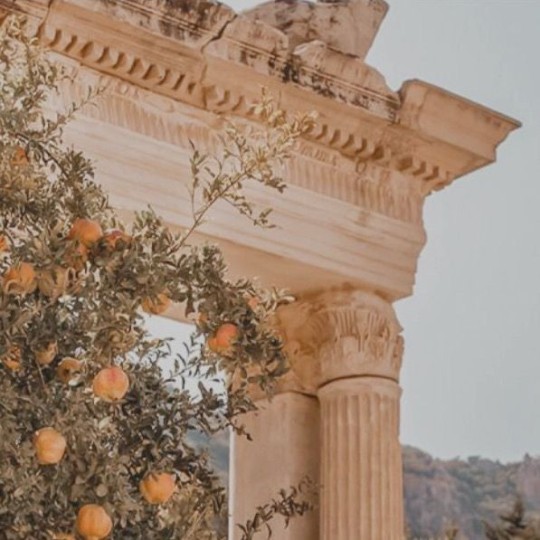

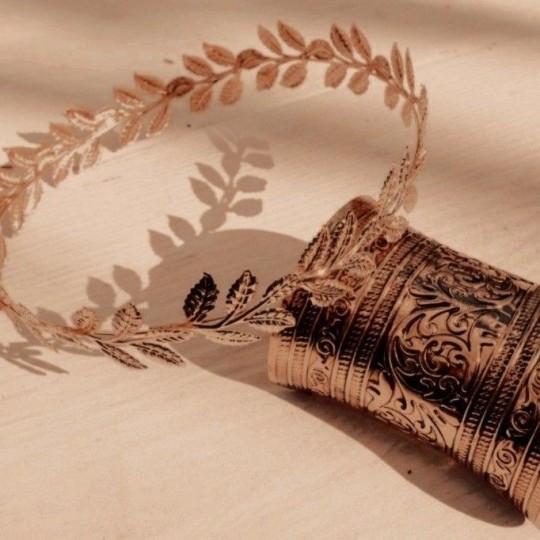


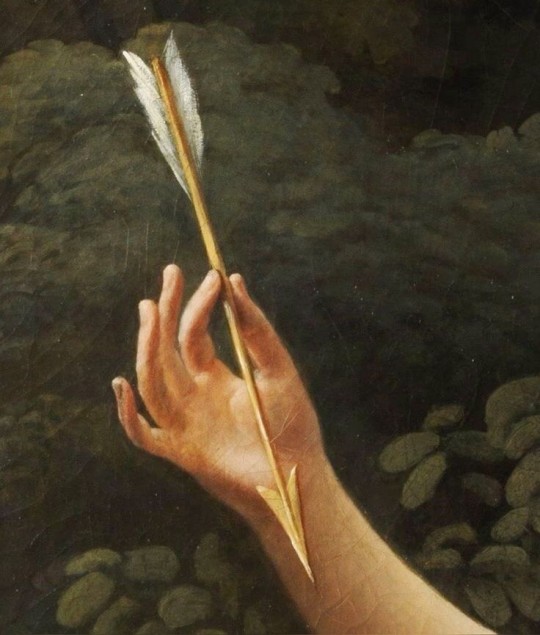
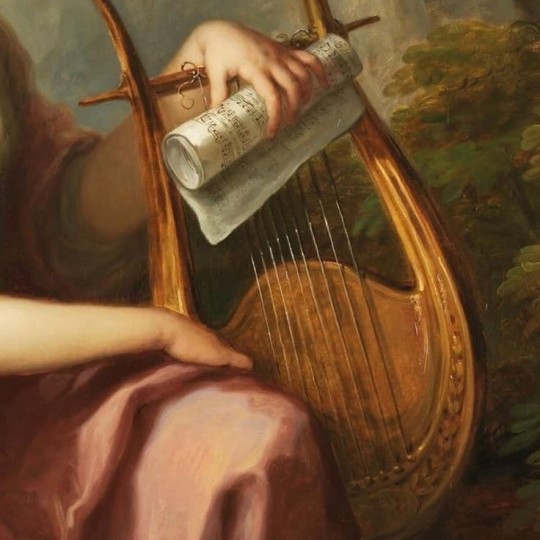

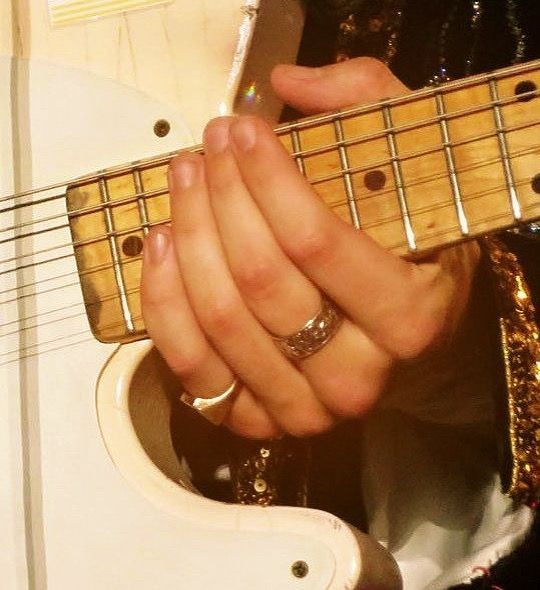
How, then, shall I sing of you who in all ways are a worthy theme of song? For everywhere, O Phoebus, the whole range of song is fallen to you, both over the mainland that rears heifers and over the isles. All mountain-peaks and high headlands of lofty hills and rivers flowing out to the deep and beaches sloping seawards and havens of the sea are your delight. Shall I sing how at the first Leto bare you to be the joy of men, as she rested against Mount Cynthus in that rocky isle, in sea-girt Delos -- while on either hand a dark wave rolled on landwards driven by shrill winds -- whence arising you rule over all mortal men?
#hellenic polytheism#hellenic pagan#lord apollo#apollo deity#apollo worship#forgotten amongs the stars
502 notes
·
View notes
Text
"And you, oh lord Apollo, god of the silver bow, shooting afar, now walked on craggy Cynthus, and now kept wandering about the islands and the people in them. Many are your temples and wooded groves, and all peaks and towering bluffs."
— Hymn 3 to Apollo.
#lord apollo#apollo worship#apollon#apollo#hymn to apollo#hymns#hellenic polytheism#hellenic deities#hellenic pagan#hellenic worship#hellenism#greek gods#quotes#helpol
141 notes
·
View notes
Text
The friendship of Artemis, Athena and Persephone
Excerpts:
Diodorus Siculus: And both Athene and Artemis, the myth goes on to say, who had made the same choice of maidenhood as had Kore and were reared together with her, joined with her in gathering the flowers, and all of them together wove the robe for their father Zeus. And because of the time they had spent together and their intimacy they all loved this island above any other, and each one of them received for her portion a territory, Athene receiving hers in the region of Himera . . . Artemis received from the gods the island of Syrakouse (Syracuse) . . . Like the two goddesses whom we have mentioned Kore, we are told, received as her portion the meadows round about Enna; but a great fountain was made sacred to her in the territory of Syrakousa and given the name Kyane or ‘Azure Font’.
Pseudo-Hyginus, Fabulae 145 (trans. Grant) (Roman mythographer C2nd A.D.) : “Pluto [Haides] asked from Jove [Zeus] that he give him in marriage Ceres’ [Demeter’s] daughter and his own. Jove said that Ceres would not permit her daughter to live in gloomy Tartarus, but bade him seize her as she was gathering flowers on Mount Etna, which is in Sicily. While Proserpina [Persephone] was gathering flowers with Venus [Aphrodite], Diana [Artemis], and Minerva [Athena], Pluto came in his four-horse chariot, and seized her. Afterwards Ceres [Demeter] obtained from Jove [Zeus] permission for her to stay half of the year with her, and half with Pluto [Haides].”
Valerius Flaccus, Argonautica 5. 344 (trans. Mozley) (Roman epic C1st A.D.) : “Proserpine [Persephone] in spring-time led the dance over Hymettus’ flowery ridges or beneath the cliffs of Sicily, on this side stepping close by Pallas [Athene], on that side hand in hand with her beloved Diana [Artemis], taller than they and surpassing her fellows, ere, she grew pale at the sight of Avernus [Pluto-Haides] and all her beauty fled.”
Homeric Hymn: Pallas who rouses battles and Artemis delighting in arrows: we were playing and gathering sweet flowers in our hands, soft crocuses mingled with irises and hyacinths, and rose-blooms and lilies, marvellous to see, and the narcissus which the wide earth caused to grow yellow as a crocus.
CLAUDIAN, Rape of Proserpina: Between the two [Artemis ands Athena] Ceres’ child [Persephone], now her mother’s pride, so soon to be her sorrow, treads the grass with equal pace, their equal, too, in stature and beauty; Pallas you might have thought her, had she carried a shield, Diana, if a javelin.
….Behind her hasten Diana, fair queen of Arcadian Lycaeus, and Pallas who, with her spear, protects the citadel of Athens – virgins both; Pallas, cruel goddess of war, Diana, bane of wild creatures. On her burnished helmet the Triton-born goddess wore a carved figure of Typhon, the upper part of his body lifeless, the lower limbs yet writhing, part dead, part quick. Her terrible spear, piercing the clouds as she brandished it, resembled a tree; only the Gorgon’s hissing neck she hid in the spread of her glittering cloak. But mild was Diana’s gaze and very like her brother looked she; Phoebus’ own one had thought her cheeks and eyes, her sex alone disclosed the difference. Her shining arms were bare, her straying locks fluttered in the gentle breeze, and the chord of her unstrung bow hung idle, her arrows slung behind her back. Her Cretan tunic, gathered with girdles twain, flows down to her knees, and on her waving dress Delos wanders and stretches surrounded by a golden sea.
Statius Thebaid: Just so might Pallas and Phoebus’ sterner sister glide down together from high heaven, terrible alike in armour and in looks, and with golden hair braided on their heads, bringing their maiden company, from Cynthus she and she from Aracynthus; they wouldst thou never learn by long gazing, even had thine eyes leave to gaze, which had the greater beauty, which the greater charm, or which had more of Jove, and were they but pleased to take each other’s dress, Pallas would beseem the quiver and Delia the crested helmet.
Statius, Achilleid 1. 824 ff : “Beneath the rocks of Aetna in Sicily Diana [Artemis] and bold Pallas [Athene] and the consort of the Elysian monarch [Proserpina-Persephone] shine forth among the Nymphae (Nymphs) of Enna. Already they begin to move, and the Ismenian pipe gives signal to the dancers; four times they beat the cymbals of Rhea, four times the maddening drums, four times they trace their manifold windings. Then together they raise and lower their wands, and complicate their steps, now in such fashion as the Curetes and devout Samothracians use, now turning to face each other in the Amazonian comb, now in the ring wherein the Delian sets the Laconian girls a- dancing, and whirls them shouting her praises into her own Amyclae.
15 notes
·
View notes
Text
The Bard of Olympus Apollo


Art by Me/ @maydayhall
Symbols

Color: Gold, Orange, Pink and White
Elements: Fire 🜂
Tarot Cards: The Sun, The Knight of Wands, Three of Swords and The Wheel of Fortune
Food🍊: Ambrosia, Nectar, Orange Cake, Olives and Sun Water
Herbs🍯: laurel, larkspur, cypress, poplar, hyacinth, rush, anise, palm, sunflower, aloe, citrus.
Animals🐬: Ravens, Swans and Dolphins
Crystals💎:Sunstone, Quartz, Calcite, Amber and Yellow Sapphire
Incense🫐:Frankincense, Myrrh, Cypress, Clove, Ciannamon and Vanilla


Devotional Acts
- Writing poetry
- Karaoke or writing your own music
- making playlist for your ancestors, friends or deities
- Giving Gifts to your loved ones on a Sunday
- Donate to medical charities and learn medicines
- Support up-and-coming/indie artists and musicians.

pregnant with the offspring’s of Zeus, Leto ran away to save herself and her child in the land of Delos because Hera cursed her to never give birth. however, Leto was able to give birth to twins in the secret land of Delos — a boy (Apollo) and a girl (Artemis). it is said that Artemis was born first and helped her mother in giving birth to Apollo on the mountain Cynthus. however, Hera had already sent the dragon serpent python – (the son of Gaia) – to kill them. after being born, Apollo was fed the nectar of ambrosia, and within some days he grew strong and brave, ready to take revenge. at the age of four, he was able to slay the monstrous python with special arrows given to him by the god of blacksmiths Hephaestus. he was worshiped by the people of Delos for his bravery.

#paganism#hellenic polytheism#helpol#hellenic deities#hellenic pagan#hellenic worship#hellenic gods#deity worship#hellenic devotion#apollon deity#apollon god#apollo devotion#🎸🌻🏳️🌈#Spotify
14 notes
·
View notes
Note
Names and etymology
The English proper name for Earth's natural satellite is typically written as Moon, with a capital M. The noun moon is derived from Old English mōna, which stems from Proto-Germanic *mēnōn, which in turn comes from Proto-Indo-European *mēnsis 'month' (from earlier *mēnōt, genitive *mēneses) which may be related to the verb 'measure' (of time).
Occasionally, the name Luna /ˈluːnə/ is used in scientific writing and especially in science fiction to distinguish the Earth's moon from others, while in poetry "Luna" has been used to denote personification of the Moon. Cynthia /ˈsɪnθiə/ is a rare poetic name for the Moon personified as a goddess, while Selene /səˈliːniː/ (literally 'Moon') is the Greek goddess of the Moon.
The English adjective pertaining to the Moon is lunar, derived from the Latin word for the Moon, lūna. Selenian /səliːniən/ is an adjective used to describe the Moon as a world, rather than as a celestial object, but its use is rare. It is derived from σελήνη selēnē, the Greek word for the Moon, and its cognate selenic was originally a rare synonym but now nearly always refers to the chemical element selenium. The element name selenium and the prefix seleno- (as in selenography, the study of the physical features of the Moon) come from this Greek word.
Artemis, the Greek goddess of the wilderness and the hunt, also came to be identified with Selene, and was sometimes called Cynthia after her birthplace on Mount Cynthus. Her Roman equivalent is Diana. The names Luna, Cynthia, and Selene are reflected in technical terms for lunar orbits such as apolune, pericynthion and selenocentric.
The astronomical symbols for the Moon are the crescent ☽ and decrescent ☾, for example in M☾ 'lunar mass'.
Lunar geologic timescale
Main article: Lunar geologic timescale
Millions of years before present
The lunar geological periods are named after their characteristic features, from most impact craters outside the dark mare, to the mare and later craters, and finally the young, still bright and therefore readily visible craters with ray systems like Copernicus or Tycho.
The English word sun developed from Old English sunne. Cognates appear in other Germanic languages, including West Frisian sinne, Dutch zon, Low German Sünn, Standard German Sonne, Bavarian Sunna, Old Norse sunna, and Gothic sunnō. All these words stem from Proto-Germanic *sunnōn.[17][18] This is ultimately related to the word for sun in other branches of the Indo-European language family, though in most cases a nominative stem with an l is found, rather than the genitive stem in n, as for example in Latin sōl, ancient Greek ἥλιος (hēlios), Welsh haul and Czech slunce, as well as (with *l > r) Sanskrit स्वर् (svár) and Persian خور (xvar). Indeed, the l-stem survived in Proto-Germanic as well, as *sōwelan, which gave rise to Gothic sauil (alongside sunnō) and Old Norse prosaic sól (alongside poetic sunna), and through it the words for sun in the modern Scandinavian languages: Swedish and Danish sol, Icelandic sól, etc.[18]
The principal adjectives for the Sun in English are sunny for sunlight and, in technical contexts, solar (/ˈsoʊlər/),[3] from Latin sol.[19] From the Greek helios comes the rare adjective heliac (/ˈhiːliæk/).[20] In English, the Greek and Latin words occur in poetry as personifications of the Sun, Helios (/ˈhiːliəs/) and Sol (/ˈsɒl/),[2][1] while in science fiction Sol may be used to distinguish the Sun from other stars. The term sol with a lowercase s is used by planetary astronomers for the duration of a solar day on another planet such as Mars.[21]
The astronomical symbol for the Sun is a circle with a center dot, .[22] It is used for such units as M☉ (Solar mass), R☉ (Solar radius) and L☉ (Solar luminosity).[23][24] The scientific study of the Sun is called heliology.[25]
4 notes
·
View notes
Note
Can I ask your top 10 fav fics ever (from any fandom, if you don't mind)?
Also, just curious, is there a story behind your name "cnthius "?
*stretches arms*
not in any specific order, but;
Lying in the Imprint of Your Echo by kanekei —was everything I could ever want from skk.
Magic and Mystery by Allegory_for_Hatred —had me reading until 3am struck and my eyes could barely keep open.
Letters from the Underground by ktaem —first ever Fyozai fic, and I've adored it since.
passerine by blujamas, thcscus (blujamas) —changed my taste in fiction honestly, just so good.
Butterfly Reign by @tuesday-teyz —I beta for this fic and safe to say, changed my life and has given me so much pain.
all that is left by alaruya (not just a fic, the whole series) —this just had such a beauty to it that I still can't move on from it.
tell me we do not live in vain by valleykey —opened my eyes to topics I used to be too scared to approach.
Kieta by @wheatbus —current fave, the whole series is enjoyable and (almost) daily updates.
Ineffable Partners by Ch_ee_rios (another whole series) —had me gasping and rolling circles in my bed becaose of embarrassment, joy, and pure sadness. Worth a thousand rereads.
Head Full of Lies by AbsoluteNegation —if this was a tea someone made for me, I'd marry them.
As for my name, it actually came from a previous username I had (which I grew bored of lol), and that is "cnthus", inspired by the mountain named "cynthus". But since twitter didn't have it as it is, I removed the "y" and had it for around a year, 'til I decided to add an "i". The name in general is derived from the greek epithets of Apollo and Artemis.
27 notes
·
View notes
Note
I wonder…
What are the names meanings of the characters in Carmen Jones (Film 1954)?
Carmen: "Song."
Joe: Short for Joseph, meaning "He (God) shall add."
Husky: A nickname meaning "strong" or "hefty."
Cindy Lou: "Cindy" is short for Cynthia, meaning "woman from Cynthus"; "Lou" is short for Louise, meaning "famous in battle."
Frankie: Short for Frances, meaning "Frenchwoman."
Myrt: Short for Myrtle, meaning, of course, "myrtle plant."
Dink: A nickname meaning "jerk" or "nerd."
Rum: A nickname meaning a type of alcohol.
Billy: Short for William, meaning "strong helmet."
2 notes
·
View notes
Note
As a more recent follower of yours, I have to ask now:
What other OCs??? They need love too????
i technically have one other tf oc, his name is altair, he's an astrocartographer and his alt mode is a space telescope! i haven't written or thought much about them though.

And then the rest are original ocs, made in my bffs homebrew ttrpg setting, my first big two are JAK and Pandora, a human consciousness with corrupted memory files downloaded onto a kickboxing robot and a disgraced major league bot fighting engineer turned illegal underground unregulated bot fighting champ! most of my content about them surrounds the strangeness of their relationship and their more personal emotional issues though. they're definitely my most fleshed out ocs

I also have my two active tabletop characters, cablebunny from my cyberpunk campaign, and the professor from my dnd5e campaign, a livestreamer who attempts to solve missing persons cases in night city, and a college professor/giant bug veterinarian respectively

and then theres my gaggle of freaks from my original fantasy world The Spire. I have an mc adventurer character (you can find them under the tag #the knight or #insect knight) but i've been more focused or more talkative about the level lords, a group of semi omnipotent beings who work together to make the titular spire the worst place ever.
there are twelve of them. i cannot cover each one individually on this post

but yea! aside from past ocs and inactive dnd characters, those are all my current ocs, thanks for asking!
#archie answers#my ocs#altair#jak#pandora#the professor#cablebunny#ezotyl#vedal#giidri#odonsahr#luzeyus#juzaal#kasyaht#zahrak#estul#y'sephret#nadir#cynthus#tf oc#circua#circua prime#cyberpunk#bug campaign#dnd#the spire
71 notes
·
View notes
Text
can we as a fandom explore more of Kanade’s relationship with her grandma cause like. Where is this woman
like I know her grandma was the one to hire Honami but also. Why doesn’t she come take care of Kanade herself? Idk about anyone else but if I found out my grandchild’s only living parent was hospitalized and thus unable to care for them I feel like the next logical course of action is to either go live with them or have them live with you. And the latter option is one I know Kanade would violently protest
we know that she does check in on Kanade at least a little bit based on the call in Kana4 but. Why call when you could be physically present with her?
I’m all for exploring Kanade’s relationship with her parents but can her grandma come visit her or something cause I need to know more about their dynamic
#cynthus yaps#project sekai#kanade yoisaki#yoisaki kanade#n25#pjsk#proseka#Idk I still haven’t read all the event stories so maybe I missed something#But it’s interesting to me how the only family Kanade has left to rely on isn’t ever physically present
25 notes
·
View notes
Text

if ella had a middle name, what do you think it would be?? her full name is Eleanor Tremaine ( going off the disney canon that her father was actually named Lord Tremaine from one of the EARLY disney books ) her mother's name was Astrid Eleanor so she is named for her mother and Ella is from France.
i do have the headcanon that Ella's mother was friends with Queen Leah from Sleeping Beauty :3
2 notes
·
View notes
Text
Izroulia bonus chapter
This is a little bonus backstory that I couldn’t really fit into the actual book. It goes a little deeper into Aries’ parents and Momo.
July 1st 1990
“Lana shut the fuck up, are you kidding?”
“Nope! I’m pregnant, MOMO I’M HAVING A BABY!”
Screaming in joy, the best friends leapt into each other’s arms and squeezed each other in a tight hug. Lana wasn’t exactly actively trying for a baby, but she and Cynthus had decided that if it happened, then it happened and they’d roll with it. But something about it actually happening made it seem so much more exiting and joyful. It was much too early to tell the sex of the baby, but Lana didn’t care what her kid was. She just wanted a healthy and happy child.
“I better get to be the cool god mother” Momo said.
“Duh, that’s why I’m here. To tell you you’re going to be the godmother. If for some reason me and Cynth are out of action you’re the next of kin” Lana replied.
“That I can do. Holy shit Lana you’re having a freaking KID!”
“I KNOW!”
The siren was already thinking of names, nursery ideas, looking for patterns to make baby clothes. And her fiancé was already out getting wood to make a custom crib with. They were thinking a sailor themed nursery, perfect fit for a siren. So a crib shaped like a little boat? That’s be the cutest thing ever.
“Did Cynthus have a heart attack?” Momo snickered.
“In a good way yes, you should have seen that absolute baby. Literally sobbing he was so exited” Lana replied.
“Seems like deep down he really did want that baby”
“I think he did, hey got his wish. 10 weeks in”
Momo still wasn’t in a relationship, and she didn’t really feel the need for one right now. Not when she was going to be on full time baby helping for her two best friends soon anyway. She was overjoyed for them, she’d known Lana since highschool and Cynthus joined the group only about a year later. They’d all be so close, Momo didn’t mind being the third wheel because they all got along so well and were genuinely such deep friends.
“Any names or too early?” Momo asked.
“A few. Rhiannon, Tessa, Lux for a girl. Maybe Lucian or Atantic for a boy. But honestly I have a soft spot for gender neutral names” Lana explained.
“You know how they say mothers can tell the gender before the baby is born? Maybe that’s why. Maybe they’ll end up both” Momo joked.
Oh how ironic that joke would end up in the years to come…
“Haha, maybe. I don’t really have any guy feelings but then again, it’s early. But for androgynous names there’s Fawn… or maybe Aries” Lana said.
“Ooh Aries is good” Momo replied.
“Cynthus did the math, they’ll be born in Aries season so he thought it’d be a good candidate”
“It is, I say Aries. Or maybe Rhiannon if it’s a girl”
There was so much to do. Get all the supplies, tell the family, pick a name, go to all the check ups, build the nursery… but even with all the work and pregnancy symptoms to deal with. Lana was still practically jumping out of her skin. She was going to be a mother, and the father was the love of her life. And the godmother? Her best friend. She felt like absolutely nothing could stop her, being her down or wipe away her smile.
July 1st 1991
“Everything is in the crib, we didn’t have much time so it’s a bit if a mess. But it’s all there… everything you need to raise a baby” Cynthus said, a numbness in his voice.
“Cynth there has to be someth-“ Momo said.
“There isn’t… it’s too dangerous to take a newborn through a portal. Let alone an unstable one. If things work we will be back… promise”
Momo looks over at Lana, clutching the sleeping baby to her chest, sobbing her eyes out. It’d only been 4 months. 4 months with her baby, and now she has no choice but to say goodbye. She knew Momo would take care of her child, but she’d gone through 9 months of pregnancy and excitement waiting for the day she got to meet her baby. And after all that… only 4 months together.
But she had no choice. At the rate Merfolk wee being killed, it was either run or die. And a newborn just can’t go through an unstable portal… it’d kill them instantly.
Cynthus turned to his fiancé, tears in his eyes as he pulled her and his baby into a hug. He wanted to scream, but he tried to keep it together for Lanas sake. He placed a kiss on the babies cheek, threatening to break down.
“Daddy will be back ok? I promise…” he said.
Lana took a breath, she look one more look at her baby and kissed their forehead.
“Be good for mama Momo ok? I love you guppy, I’ll come back one day. I promise” she sniffled.
With tears in her eyes, Momo took the sleeping child, and pleaded with her gaze at her best friends to stay. She knew they couldn’t, but she wanted them to stay so bad. If Agnemetra didn’t cease the throne… this never would have happened.
“Momo, I love you. Take care of my baby” Lana said.
“I will… I promise” Momo replied.
The group hugged one last time, and hardly able to keep it together Lana and Cynthus got into their car and pulled out of the driveway to the portal centre. Hoping that if they were lucky, they could get out with their lives.
Momo took the baby inside, on the table was a basket of supplies. Bottles, clothes, formula, pacifiers. Next to the table the handmade crib with the rest of the supplies. She needed to set up, she had a baby to care for now.
She wrapped the child up in a sling, so she could keep them close and move stuff around at the same time. She packed all the supplies into her cupboards, and pushed the crib into her room next to her bed. She set up the mobile of sea creates she gifted to the parents at the baby shower, put the blankets with little fish and anchors on it over the mattress. And she placed the sleeping baby in their crib.
They had Lana’s black hair, Cynthus pale skin and blue eyes. A true mix of their parents. All warm and cosy in a knitted onesie, something Lana made while she was in the late stages of pregnancy and couldn’t move around as easy. Hanging off the railing of the crib was a necklace chain that held the family signet ring for the child to wear when they were older.
The boat shaped crib was pained red and navy, had a little life raft and sail on it. Where the name of the boat would be, was the name of the child.
Aries Nautica.
Momo sat on her bed, looking down at the baby who was completely unaware the danger they were in and how painful this was for their parents. Momo had a sinking feeling she may never see her best friends again, and now she had to take care of their child.
Aries would always be Lana and Cynthus’ child. But right now… Aries was her child too.
Aries was the only thing she’d have left of Lana and Cynthus… and every day they were alive in Izroulia, their life was in danger because they were born to two sirens.
Momo sighed, and everything just broke.
All she could do was cry.
#Izroulia#Izroulia bonus chapter#aries nautica#Lana nautica#Cynthus nautica#Momo swan#original character#author#autistic author#independent author#lgbt author#my oc story#original book#original characters#original story#fantasy story#fantasy characters#my oc#my ocs
2 notes
·
View notes
Text

Note: Aphelios x Fem!Albino!Lunari!Reader. A quick doodle Fem!Albino!Lunari!Reader from this cute fic by @asaarii
(Actually, while I read it I kinda create some lore for her too! It's random and may not accurate from LoL original lore since I don't play this game but...yeah I just want this smol rabbit girl to have some background story🫥 hope you don't mind with my broken english skills lol🤣) Cynth >> Her name inspired from 'Cynthia' meaning "she of Mount Cynthus" (the birthplace of Artemis) which associate with moon and I think it suit the lunari concept! Also, Her name spell the same as 'Sin' represent the concept that she os the odd one and different from others. At first I want her to use some rifle things like Aphelios but since she's not good at hearing and her eye-sight is bad, Making her a warrior might not be a good idea. So, I change her lore to be the Priestess instead-
She may look cold at first pic but I think she would be like a smol cute white rabbit!! It makes me wanna squeeze her cheeks✨💖

(You can squeeze her cheeks!! but be careful because Aphelios is watching you—)
6 notes
·
View notes